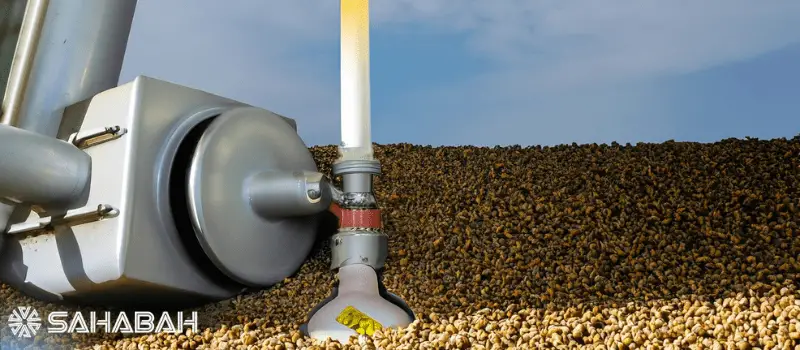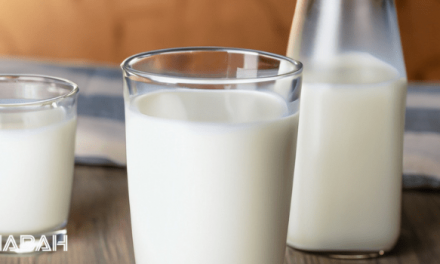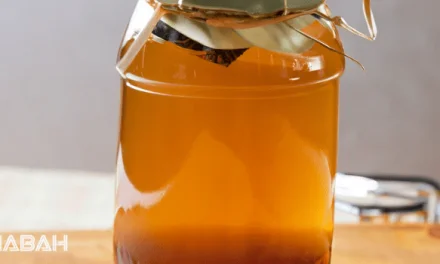Ethonal, also known as ethyl alcohol or grain alcohol, is a chemical compound frequently used as a food additive and solvent in the production of food and beverages. However, the halal status of ethonal has been a subject of debate among Islamic scholars.
There are conflicting views on whether ethanol is allowed under Islamic dietary laws:
- Some argue that ethonal is halal because it can be produced from permitted ingredients like corn, sugarcane, or grape juice through natural processes of fermentation and distillation.
- Others contend that ethonal should be considered haram (impermissible) because it is a type of alcohol, which is prohibited in Islam.
The purpose of this article is to examine the evidence and arguments on both sides of this issue. We will analyze the basis for the halal and haram viewpoints, exploring questions such as:
- At what levels of concentration does ethonal become intoxicating and therefore haram?
- Does the production process matter, and what ingredients/methods raise doubts about ethonal’s halal status?
- Which scholarly opinions and halal certification bodies consider ethonal to be halal?
By thoroughly investigating the fiqh (Islamic jurisprudence) surrounding ethonal’s halal status, this article aims to provide clarity on this pressing question for Muslim consumers and food producers.
Arguments That Ethonal is Halal in Food Industry
There are several evidence-based arguments for why ethonal can be considered permissible under Islamic law:
-
Made from natural raw ingredients
Fermenting ethanol and distilling permissible ingredients like corn, sugarcane, beet molasses, and grape juice.
-
Not intoxicating at low levels
Ethonal is considered halal by many scholars if used below the intoxicating threshold.
generally permitted provided it constitutes less than 1% of the total volume of the final food product
-
Halal certification
Major halal certification bodies like JAKIM (Malaysia), MUI (Indonesia), and CICOT (Thailand) have approved ethonal for use in halal products, provided:
- It is not made from grapes or dates
- Does not contain ethanol derived from non-halal animals
-
Is not produced using genetically modified organisms (GMOs)
-
Used as natural solvent
Ethonal can be used as a natural solvent to extract permissible flavor compounds from plant sources like vanilla, citrus fruits, and herbs:
The consensus is that ethanol used as a solvent to extract natural flavours is halal due to the followings:
- Natural process via distillation
- No chemical reaction involved
- Ethanol content is negligible in final food product
In summary, there are reasonable grounds from Islamic scholarship to consider ethonal halal in many common uses, especially at low concentrations as a natural plant-derived extract.
Arguments Against Ethonal Beverage Being Halal
While there are positions that ethonal can be halal, some scholars and evidence raise doubts by arguing:
-
Intoxicating in excess
Although ethonal may not be intoxicating at low levels, higher concentrations can cause intoxication which is strictly haram in Islam:
If it is used in large amounts, it will cause drunkenness, so it is haraam according to the more correct scholarly opinion.
-
Made from grapes, dates or pork derivatives
Certain production methods of ethonal involve using grapes, dates or pork derivatives as raw ingredients or processing agents. This can render the final ethonal haram:
Any ethanol produced from grapes, dates or any intoxicating fruit or vegetable or processed with any pork derived product such as pig’s fat or pig’s gelatin or ethanol denatured with methanol of pork origin is HARAM.
-
Lack of transparency in production
Since ethonal can be derived from many possible ingredients and processes, it raises doubt if the actual source is unclear or unknown:
The lack of information and literature about the production process poses doubt…violating the general principle: certainty is not overruled by doubt.
-
Considered alcohol by definition
Some scholars prohibit all types of alcohol (including ethonal) as a precautionary measure or because they deem it an intoxicant by nature:
scholars simply say they avoid any type of alcohol, whether it be ethanol, methanol, propanol etc.
In summary, these are the key evidence-based arguments that ethonal should be considered haram for Muslim consumers.
Analysis and Discussion on halal status of ethanol
There are good faith arguments and evidence on both sides of the ethonal halal debate. Here is an analysis of the key points:
Areas of agreement
Most scholars agree that:
- Ethonal is halal if derived from permitted ingredients like sugarcane using natural fermentation and distillation processes ([Source]).
- Ethonal is haram if made from grapes, dates or pork products ([Source]).
- Consuming ethonal in intoxicating amounts is prohibited ([Source]).
Areas of disagreement
The major disagreement is whether ethonal made from permitted sources like corn is halal at any concentration, or only when below the intoxicating limit.
Schools of thought
The Hanafi school is most lenient, considering ethonal halal regardless of concentration if derived from permitted ingredients:
According to the Hanafi school of thought, ethanol (regardless of its source) is permissible due to the fact that intoxication only occurs with drinking large quantities of it.
The Shafi’i school is more strict, prohibiting all types of ethanol as a intoxicant:
the Shafi’i school of thought, all types of alcohol used in industries (ethanol, methanol, etc) are impure.
Impact on consumers
The debate creates uncertainty for Muslim consumers trying to avoid haram ingredients:
With leading Halal certification bodies approving its use…the general public is left unsure about the utilization of ethanol in food and beverage products.
More transparency from manufacturers on ethonal’s production process can help reassure consumers of its halal status.
In conclusion, ethonal’s halal status remains somewhat ambiguous across different schools of thought, requiring further analysis by scholars. But there are grounds to consider ethonal halal in moderation from permitted sources.
Is Ethanol Halal – Frequently Asked Questions
What is ethanol?
Ethanol or ethyl alcohol, is a type of alcohol that is commonly used in various industries, including the food and beverage industry. It is derived from the fermentation of sugars or the chemical synthesis of ethylene gas.
Is ethanol halal?
Whether ethanol is considered halal or not depends on its source and the concentration present in a product. Ethanol derived from alcohol that is sourced from dates, grapes, or any other substance that is haram (forbidden), would be considered non-halal. However, synthetic ethanol that is not derived from haram sources can be considered halal.
What is the halal status of ethanol in food and beverage products?
The halal status of ethanol in halal food and beverage products can vary. If the alcohol content in a product is less than 1, it is generally considered halal. However, if the content of ethanol concentration exceeds 1%, it would be advisable to seek halal certification or further clarification from a qualified authority.
Is denatured ethanol allowed in halal products?
In certain circumstances, denatured ethanol is allowed in halal products. Denatured ethanol refers to ethanol that has been rendered toxic or unpalatable by adding substances to discourage its consumption. However, the use of absolute or denatured ethanol should adhere to the guidelines and approvals provided by appropriate halal certification authorities.
Can ethanol be used in industrial applications?
Yes, ethanol is allowed for industrial applications. Industries such as pharmaceuticals, cosmetics, and cleaning products often incorporate ethanol as a solvent or preserving agent. However, it is important to ensure that the ethanol used in industrial applications adheres to halal standards and guidelines.
How is the production of halal ethanol determined?
The main issue in the production of halal ethanol involves several factors. Firstly, ethanol is produced should be from permissible sources, such as grains or synthetic production. Secondly, the ethanol concentration should not exceed the allowable limit in halal products, typically 1%. Finally, the production process should comply with halal guidelines and standards.
Is ethanol produced by anaerobic fermentation considered halal?
Ethanol produced by anaerobic fermentation can be a controversial and main issue when it comes
Conclusion
In summary, there are evidence-based perspectives both for and against considering ethonal permissible under Islamic law:
-
Arguments for ethonal being halal focus on its derivation from plants like corn, non-intoxicating low concentrations in food, and approvals from major halal certification bodies.
-
Arguments against ethonal cite the use of prohibited alcohol in higher concentrations, lack of transparency in production methods, and some scholars prohibiting all forms of alcoholic beverage.
There appears to be consensus that ethonal derived through natural fermentation and distillation of halal ingredients like sugarcane is permitted in Islam. However, significant disagreement remains around ethonal made from sources like corn.
The Hanafi school adopts a more lenient stance, while the Shafi’i view leans towards strict prohibition of all types of alcohol including ethonal. This creates ambiguity for Muslim consumers trying to evaluate ethonal’s halal status.
In my judgement, the evidence suggests ethonal is halal if:
- Made from permitted ingredients only
- Used at non-intoxicating food-grade concentrations
- Production process is fully transparent
With proper regulations and monitoring by halal certification organizations, ethonal can be considered halal by most reasonable standards of Islamic law. More research and analysis is needed by scholars to resolve lingering doubts. Manufacturers also need to provide full traceability to reassure consumers of ethonal’s halal status.





